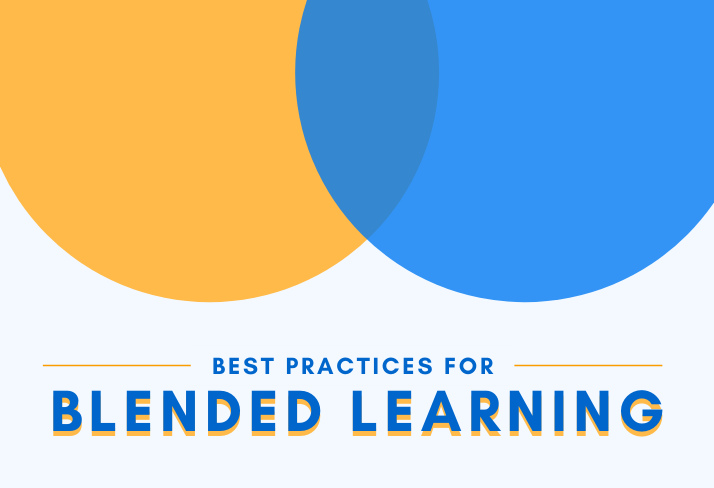|
Baseline assessments are powerful — when you ask the right questions.
James Popham, our favorite assessment guru, explains that “the right data will, in fact, help teachers do a better job with students. Those are the data we need.” It makes sense that if we are using data to inform our instruction, that data needs to reveal authentic learning.
When I teach a Methods or Content Area Literacy course, I want to know what my students know about unit planning or principles of backward design before we dive in. My students are typically education majors and have been taking courses for two years, so it is likely that they are already familiar with the principles of Understanding by Design (UbD). On the first day of classes, I poll my students using a survey that asks how much they know about unit planning and Understanding by Design. In theory, this helps determine how much class time I need to reserve for unit planning, and how many lessons I need to design to help my students unpack the UbD principles and templates. I am also modeling what good teachers do: assessing what my students already know by using a baseline assessment that will inform my instruction. The surveys typically reveal that my students feel confident with unit planning and are familiar with Understanding by Design. Good! I continue with my curriculum. Inevitably, the first major assignment of the course is a unit plan, and the students who were confident in their day one surveys are suddenly flooding my email with questions: What exactly are ‘essential questions’? What do we mean by ‘skills’? How much do we need to ‘differentiate’? And how do you really ‘differentiate’ in a unit? And suddenly, I need to pause, recalibrate, and create lessons around principles that my students previously indicated they already knew. This means pivoting and redesigning lessons to make room for more unit planning content. During this process, there is a part of me that wonders: um, why wasn’t this clear when they filled out the baseline assessment on this topic? I could have planned for this. The same is true when teaching high school students. When teaching high school seniors, I tried to be a proactive and responsive teacher by polling my students at the beginning of the year, to find out what they knew about essay writing — and wouldn’t you know, they checked “yes” to knowing all aspects of the essay. Yes to knowing how to write a thesis statement. Yes to citing and explaining evidence. Yes to having experience writing introductions and conclusions. Great! I thought, until it was time for our first essay and suddenly I was inundated with requests and concerns around our essay assignment. I had to rethink and redo my plans, and squeeze in additional lessons around essay writing. Once again, my baseline poll gave me a false sense of what students know. They may have known what these writing concepts are in theory, but still needed support in their execution. Had I not polled my students at all, I would have assumed they needed more support in writing, and would have researched and created more thoughtful writing lessons. Instead, I relied on my baseline assessment and thus my essay writing lessons felt rushed, as we were closing out the semester and trying to meet deadlines. Using data from baseline assessments can be helpful in informing instruction, but in my case, I was not asking the right questions.
Answers vs. action
The next time I teach an education course, I will instead ask students to actually write out a unit plan as a baseline assessment, instead of asking them about their knowledge and comfort with the concept of unit planning. Similarly, the next time I work with high school students, I will ask them to write an in-class essay to use as a baseline assessment, and use those essays to inform my planning. These student samples will serve as formative assessments, and will give me insight into what my students understand and don’t. From there, I can design lessons tailored to my students’ needs. Using a baseline assessment can offer very straightforward results, in some courses. Students either know how to graph functions or they don’t; they’ve learned about causes of the Revolutionary War or they haven’t. But when we are using baseline assessments to determine the extent to which students know a topic that they have familiarity with, it would be more helpful to have them produce or write out the assignment, rather than self-assess their knowledge on the topic. This is why I will shift my formative assessment from reflecting on prior knowledge to requesting that students take action to demonstrate their knowledge.
As teachers, we have to be flexible and allow for some spontaneity in our instruction. When we realize that a baseline assessment isn’t accurately revealing what our students understand, we need to be prepared to pivot and shift our instruction to meet them where they are. Baseline assessments can be helpful, but what is more crucial is committing to meeting our students where they are, and uncovering the authentic knowledge that lives within them.
|
|
The Center for Professional Education of Teachers (CPET) at Teachers College, Columbia University is committed to making excellent and equitable education accessible worldwide. CPET unites theory and practice to promote transformational change. We design innovative projects, cultivate sustainable partnerships, and conduct research through direct and online services to youth and educators. Grounded in adult learning theories, our six core principles structure our customized approach and expand the capacities of educators around the world.
|
ABOUT US
525 West 120th Street, Box 182 New York, NY 10027 416 Zankel Ph: (212) 678-3161 [email protected] Our Team Career Opportunities |
RESOURCES
Professional Articles Ready-to-Use Resources Teaching Today Podcast Upcoming PD Opportunities |
COACHING SERVICES
Custom Coaching Global Learning Alliance Literacy Unbound New Teacher Network Student Press Initiative |

























